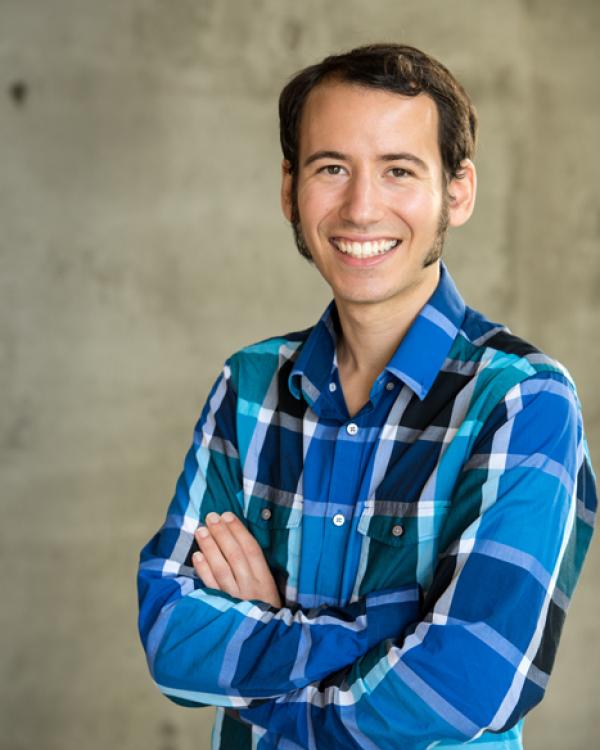
Josh Goodman will be graduating with a Ph.D. from the Department of Counseling, Clinical, and School Psychology, and he is currently a pre-doctoral intern at the University of Utah's University Counseling Center. His research focuses on psychological interventions to support LGBTQ communities.
GGSE: Do you have a favorite GGSE memory?
Goodman: Some of the most meaningful times for me have been when I know I've had a positive impact in a person's life, such as helping a client to reach their goals or seeing a student really grow in a class. More broadly, I've appreciated a lot of fun adventures at conferences and day-to-day things like catching up with people in the lounge.
GGSE: What are your plans after graduation?
Goodman: I will be a Visiting Assistant Professor of Psychology at Bates College, a liberal arts college in Maine. I'll be teaching classes in applied psychology, advising students working on their senior theses, and continuing to build upon my current research projects.
GGSE: Tell us a little about your research topic.
Goodman: My current research focuses on increasing parent support for sexual minority (lesbian, gay, bisexual, or otherwise non-heterosexual) youth. For my dissertation, I developed an online resource for parents of sexual minority youth ages 13-18--it's full of interactive activities including videos, self-reflection exercises, information about what sexual minority youth tend to find supportive from their parents, and an activity in which parents give advice on how to be supportive to a hypothetical fellow parent whose child just came out. I'm excited to say that this resource increased parents' confidence in their ability to support their child, and appears to have had the biggest impact for the parents who felt the most distressed about their child's sexual orientation. Most parents who used the resource said that they liked it and found it helpful, as well.
GGSE: Why are you interested in that?
Goodman: Sexual minority youth face mental health disparities compared to their heterosexual peers, including higher rates of depression, suicide, and substance abuse; support from parents can reduce the likelihood of these outcomes, while feeling rejected by parents can increase their likelihood. Despite the connection between parent support and mental health, there are few psychological studies that have sought to increase parent support for sexual minority youth. I was particularly interested in developing an online resource to reach parents of sexual minority youth because of the potential to reach the parents who are the least connected with existing support resources such as therapy and PFLAG meetings--for example, parents who don't have a nearby PFLAG chapter, experience barriers to accessing therapy, or don't feel ready to seek support in-person. Ultimately, my hope is to provide parents with support and tools that feel helpful to them in their role as a parent of a lesbian, gay, or bisexual child, and by extension help to create more supportive environments for sexual minority youth that help them to thrive.